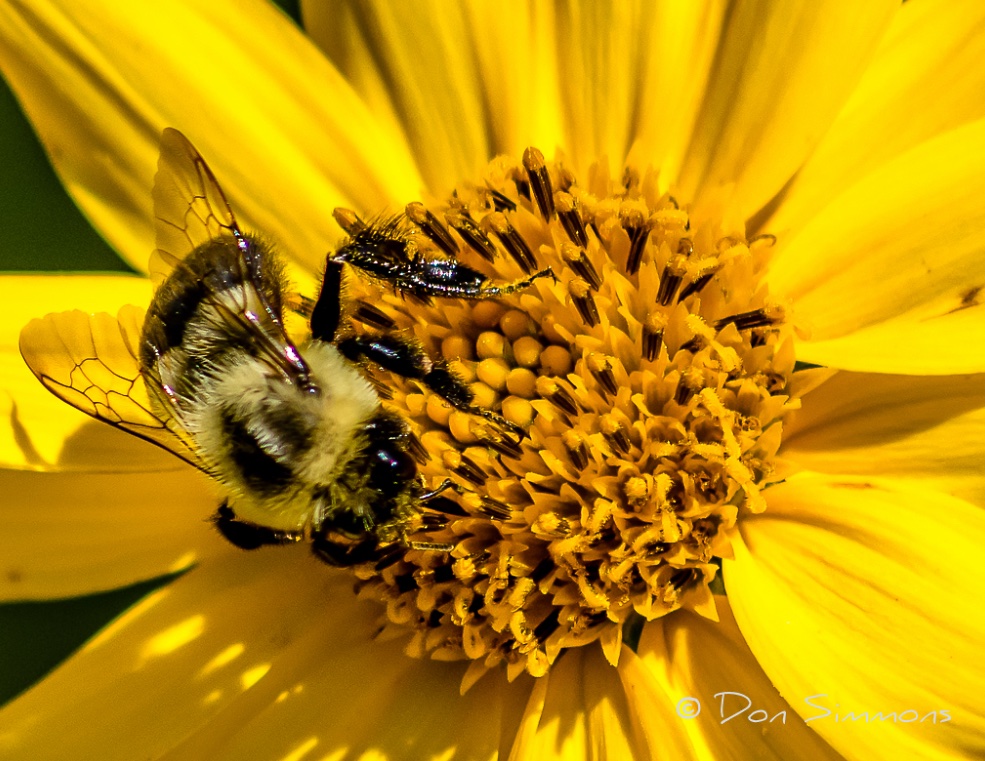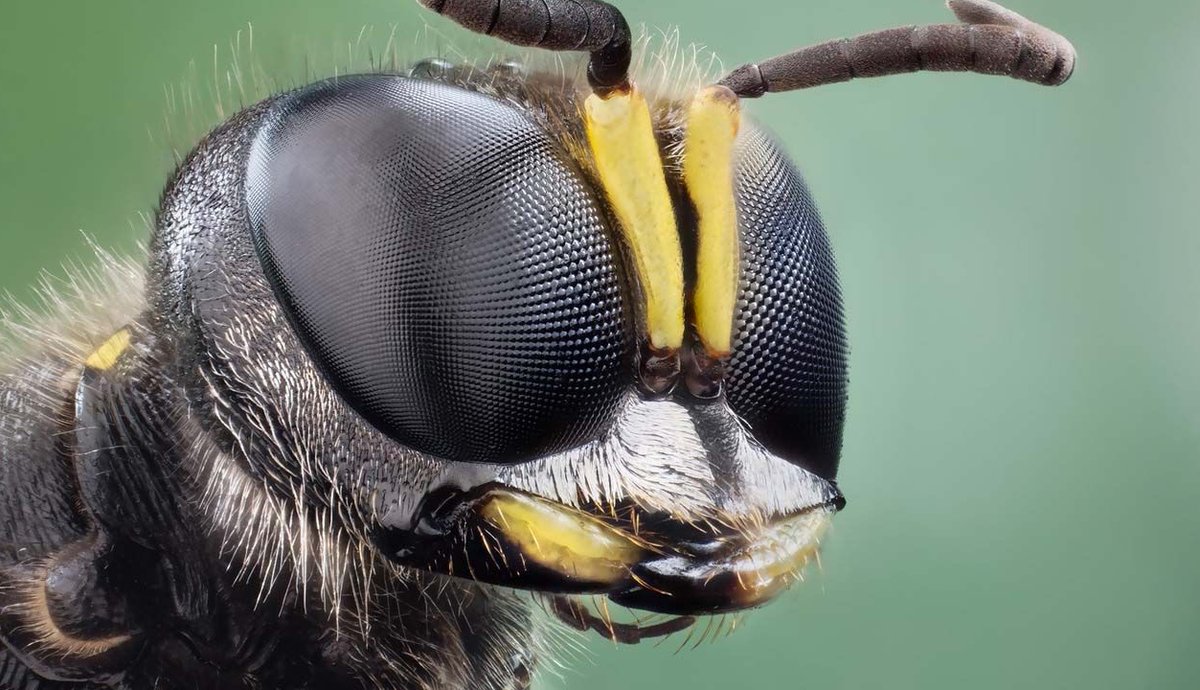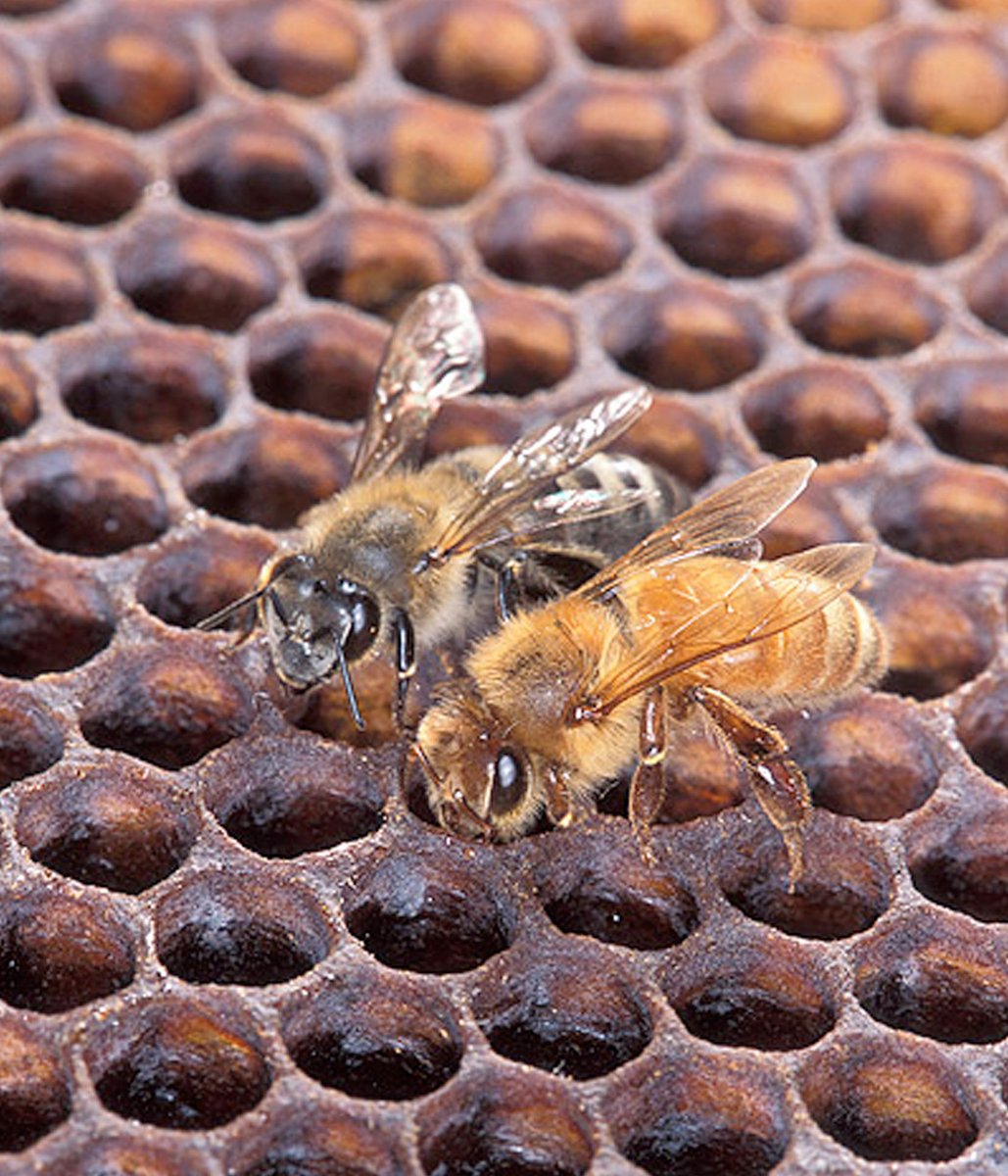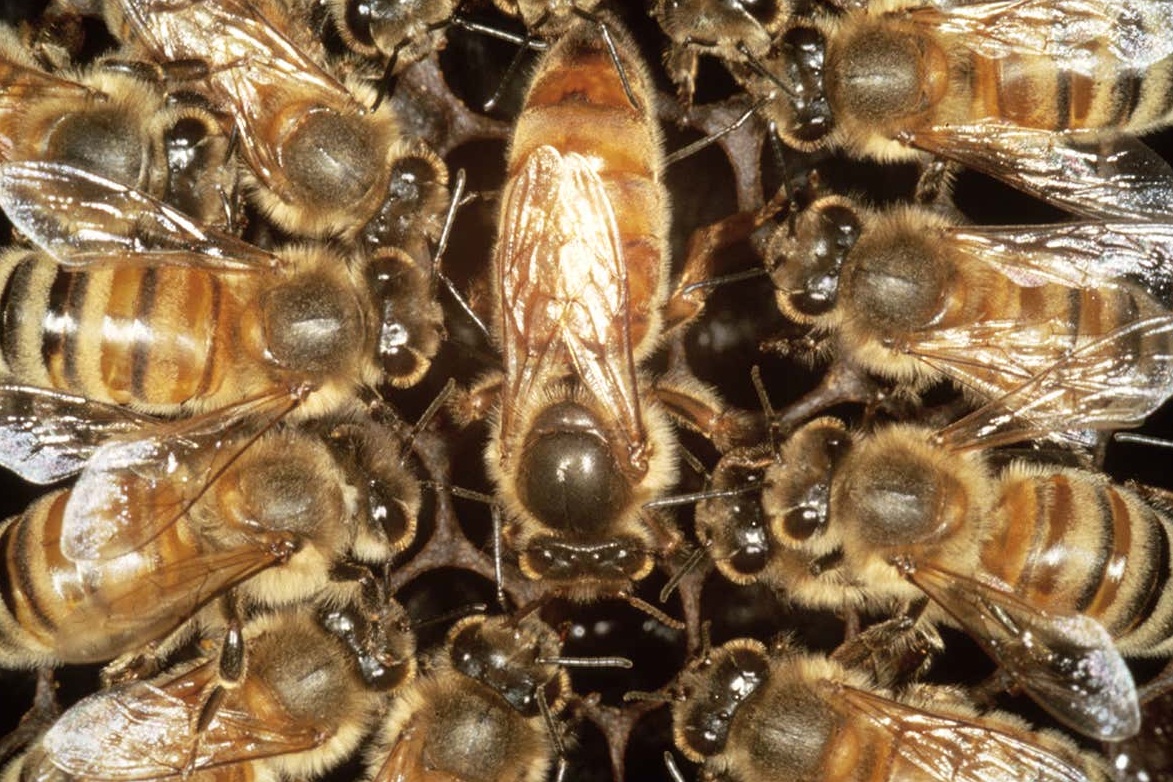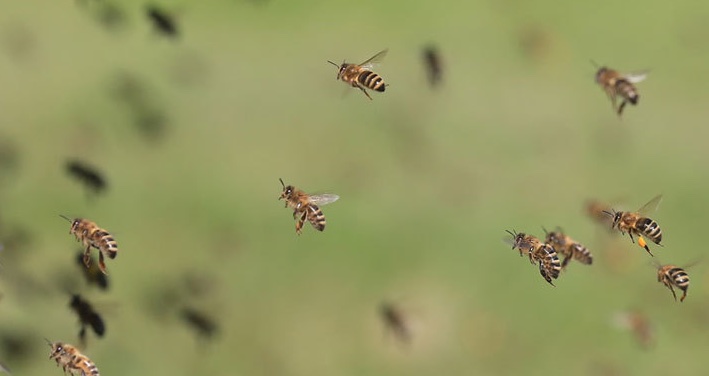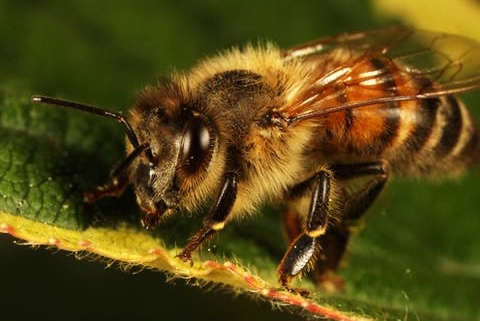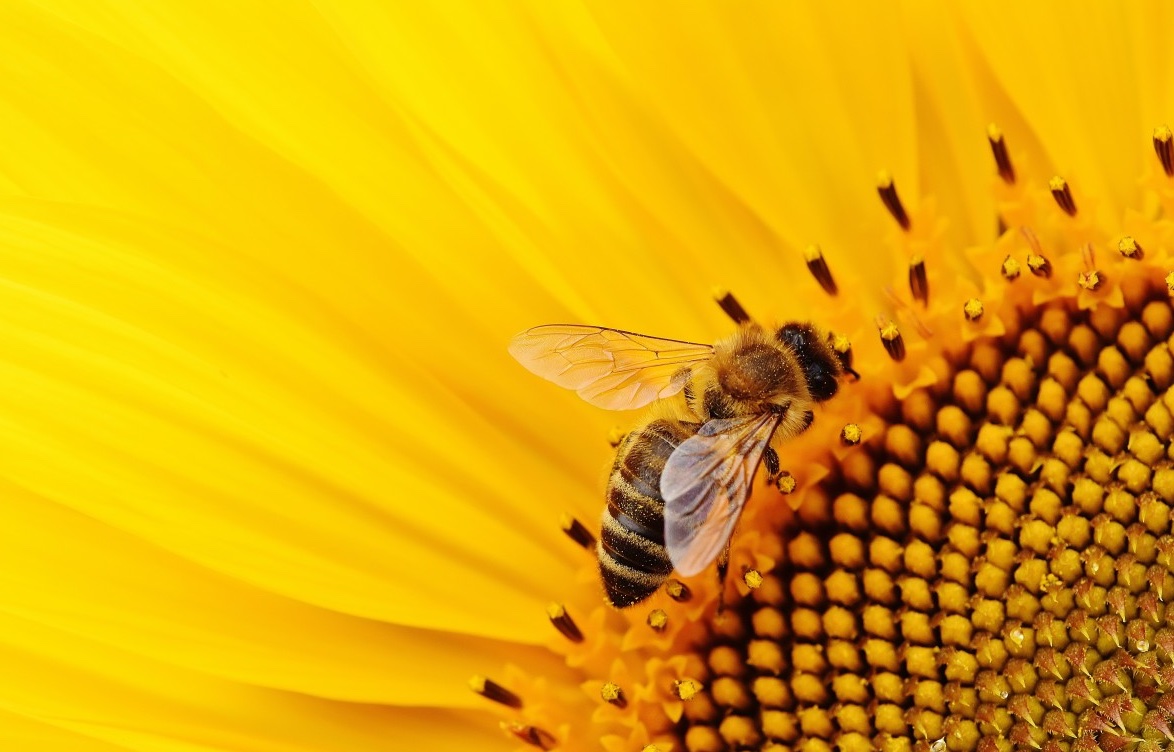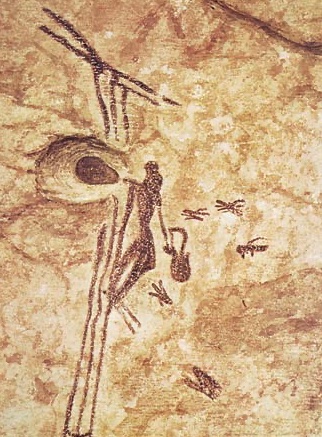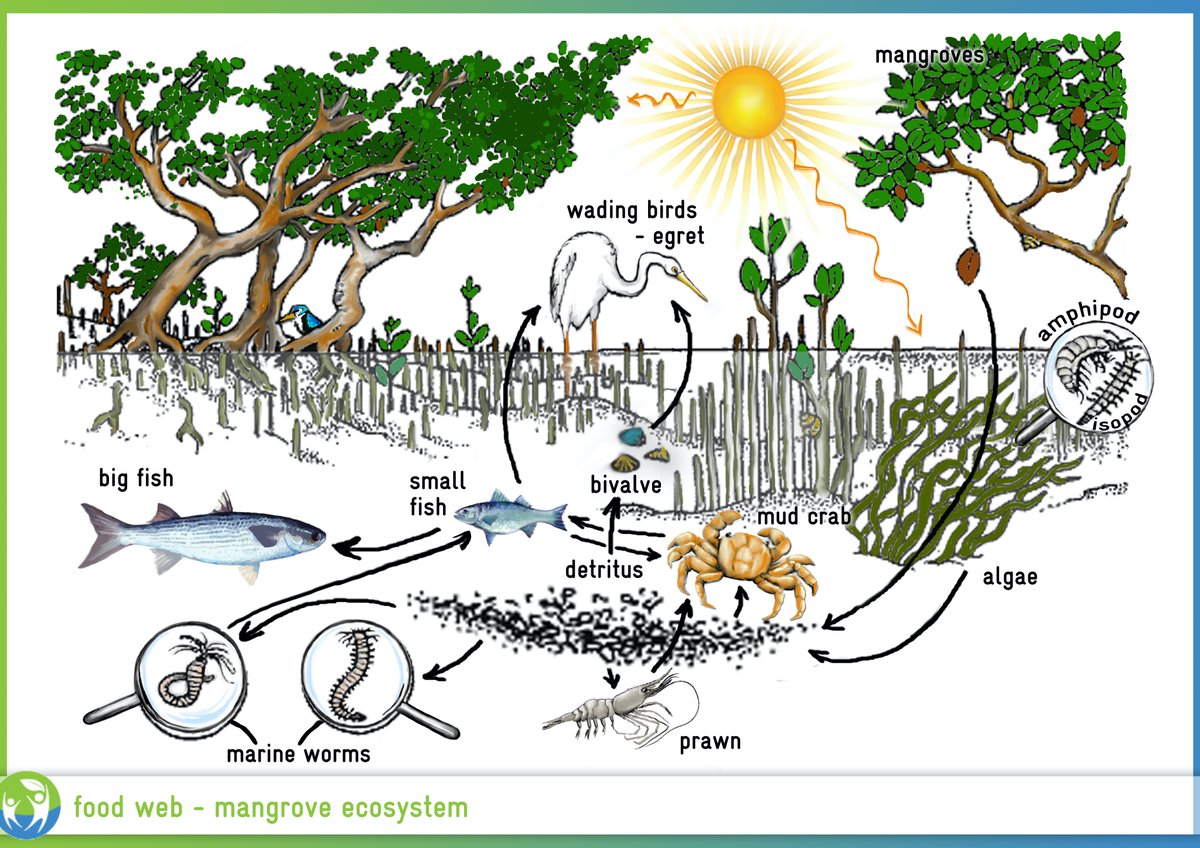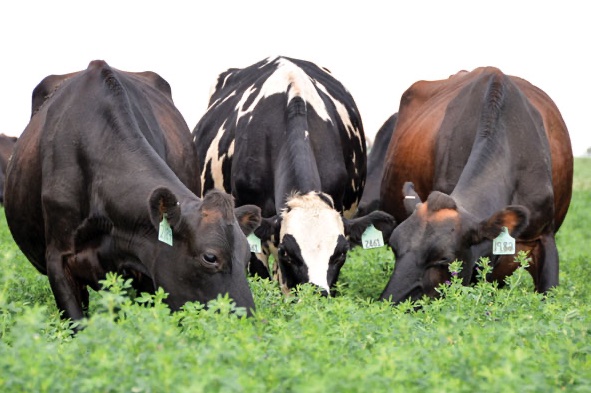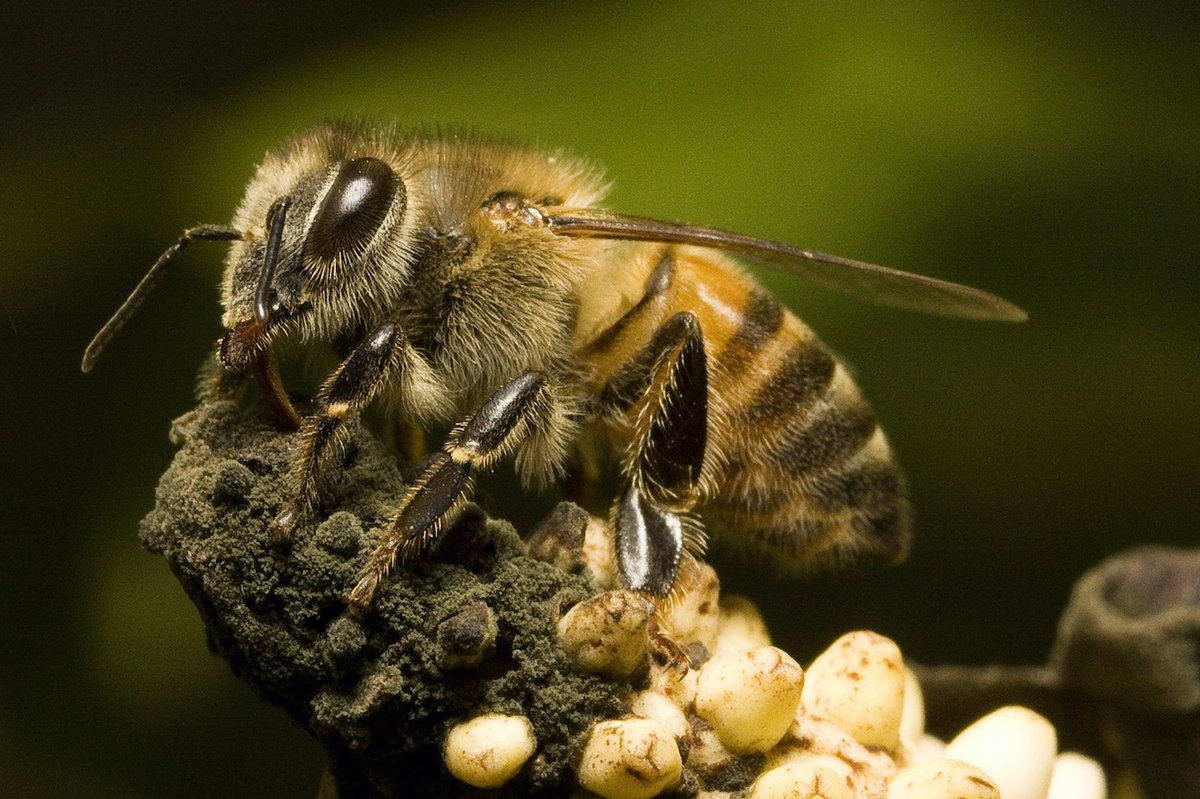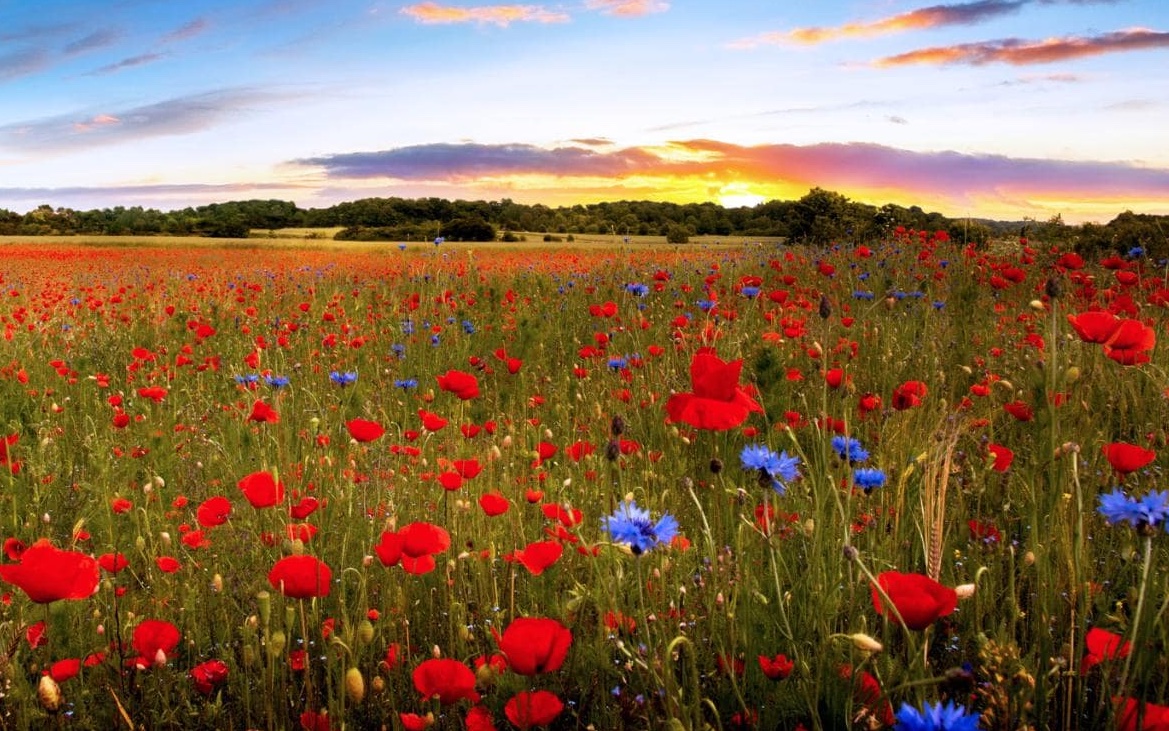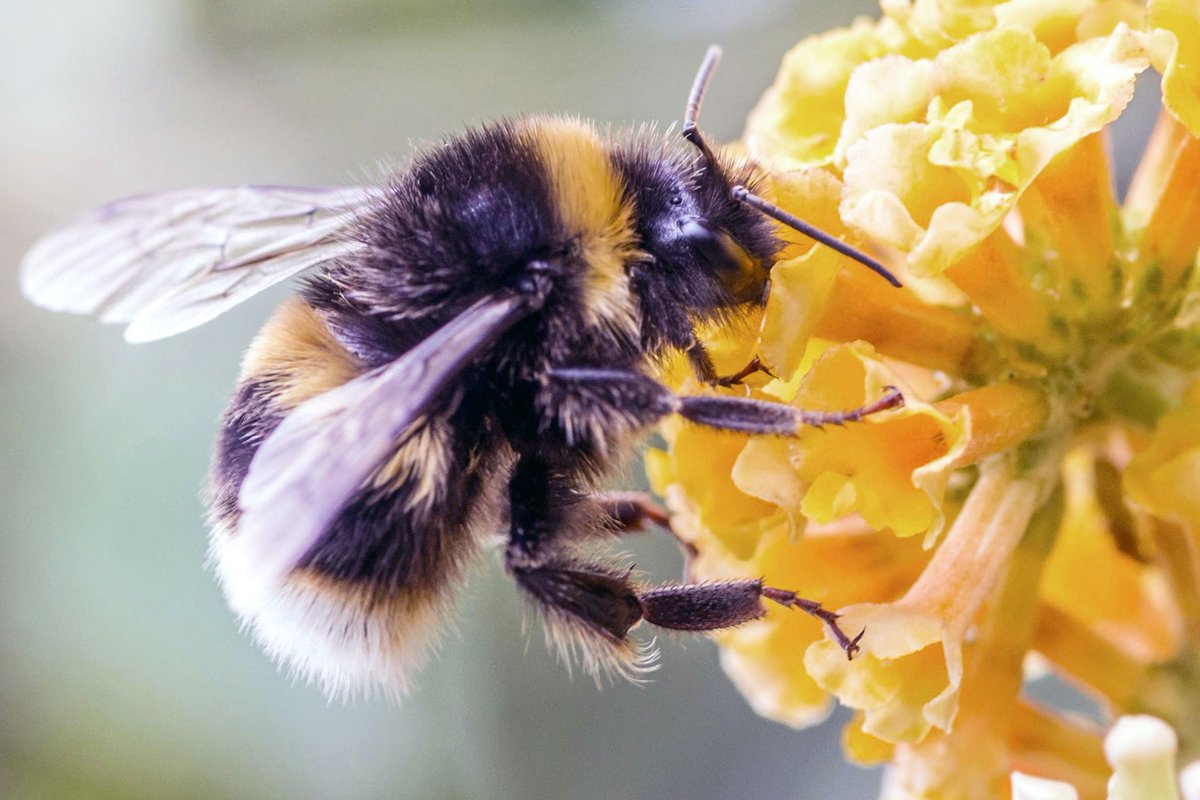Bees: sociable, sophisticated & inspiring, these tiny animals contribute c. €22 billion each year to the #EU economy! But their populations have declined by over 75% in the last 30 years. So, to bee or not to bee? That is the question.
This needs a thread! #BiodiversityCorner.
This needs a thread! #BiodiversityCorner.
First, let’s learn more about them. Prepare to  amazed!
amazed!
#DYK bees’ tiny wings can beat 200 times a second & they detect motion 6x quicker than us? Their five, hairy eyes can detect ultraviolet light, the sun behind clouds & possibly even wind direction!
& possibly even wind direction!
 amazed!
amazed!#DYK bees’ tiny wings can beat 200 times a second & they detect motion 6x quicker than us? Their five, hairy eyes can detect ultraviolet light, the sun behind clouds
 & possibly even wind direction!
& possibly even wind direction!
Though some bees are solitary, most bees live in highly structured communities of more than 15,000 individuals. Each of these societies is called a ‘colony’ & cooperates to raise young, collect & store food, & even to produce honey! 
https://myanimals.com/animals/wild-animals-animals/invertebrates/the-amazing-and-complex-social-structure-of-bees/
 Scott Bauer
Scott Bauer

https://myanimals.com/animals/wild-animals-animals/invertebrates/the-amazing-and-complex-social-structure-of-bees/
 Scott Bauer
Scott Bauer
Amazingly, these societies are almost entirely female!  You’ll know there’s only one queen bee in each hive, but #dyk the infertile worker bees are also female? Male bees, called ‘drones’, play one role only: fertilizing the queen bee.
You’ll know there’s only one queen bee in each hive, but #dyk the infertile worker bees are also female? Male bees, called ‘drones’, play one role only: fertilizing the queen bee.
#feminism?
 John B Free
John B Free
 You’ll know there’s only one queen bee in each hive, but #dyk the infertile worker bees are also female? Male bees, called ‘drones’, play one role only: fertilizing the queen bee.
You’ll know there’s only one queen bee in each hive, but #dyk the infertile worker bees are also female? Male bees, called ‘drones’, play one role only: fertilizing the queen bee.#feminism?
 John B Free
John B Free
So what’s life like for the queen bee?  Egg-focussed! Her primary responsibility is to produce more bees & she does this diligently! Queens lay up to 2000 eggs each day, then gradually fertilize them with sperm they’ve stored from mating with drones.
Egg-focussed! Her primary responsibility is to produce more bees & she does this diligently! Queens lay up to 2000 eggs each day, then gradually fertilize them with sperm they’ve stored from mating with drones. 
 Egg-focussed! Her primary responsibility is to produce more bees & she does this diligently! Queens lay up to 2000 eggs each day, then gradually fertilize them with sperm they’ve stored from mating with drones.
Egg-focussed! Her primary responsibility is to produce more bees & she does this diligently! Queens lay up to 2000 eggs each day, then gradually fertilize them with sperm they’ve stored from mating with drones. 
When fertilized eggs hatch into larvae, worker bees feed them with nutritious ‘brood food’.  After days of feasting, workers seal the larvae into their cells with beeswax & they don’t emerge until they’ve grown into adult bees!
After days of feasting, workers seal the larvae into their cells with beeswax & they don’t emerge until they’ve grown into adult bees!  #unbeelievable
#unbeelievable https://www.bbc.co.uk/news/av/uk-wales-30729832/honey-bee-life-cycle-filmed-in-the-ceiriog-valley
https://www.bbc.co.uk/news/av/uk-wales-30729832/honey-bee-life-cycle-filmed-in-the-ceiriog-valley
 After days of feasting, workers seal the larvae into their cells with beeswax & they don’t emerge until they’ve grown into adult bees!
After days of feasting, workers seal the larvae into their cells with beeswax & they don’t emerge until they’ve grown into adult bees!  #unbeelievable
#unbeelievable https://www.bbc.co.uk/news/av/uk-wales-30729832/honey-bee-life-cycle-filmed-in-the-ceiriog-valley
https://www.bbc.co.uk/news/av/uk-wales-30729832/honey-bee-life-cycle-filmed-in-the-ceiriog-valley
But queen bees are fed special royal jelly, a highly nutritious substance secreted from a gland in bees’ heads!  This enables queens to outgrow others & develop reproductive organs worker bees lack. Check out this video by @hankgreen to learn more!
This enables queens to outgrow others & develop reproductive organs worker bees lack. Check out this video by @hankgreen to learn more! 
 This enables queens to outgrow others & develop reproductive organs worker bees lack. Check out this video by @hankgreen to learn more!
This enables queens to outgrow others & develop reproductive organs worker bees lack. Check out this video by @hankgreen to learn more! 
It’s pretty rare for larvae to be fast-tracked to royalty: it only happens when the old #queen dies or leaves the hive with a swarm to found a new colony. Which takes a loooong time, in bee time anyway…
Queen bees live 6–10x longer than worker bees, and 18–30x longer than drones. To non-queens, they must seem to  immortal!
immortal! So it's a never ending wait for their successors (ring any bells, Prince Charles?
So it's a never ending wait for their successors (ring any bells, Prince Charles?  ).
).
https://sciencing.com/life-span-honey-bee-6573678.html
 Goshzilla-Dann
Goshzilla-Dann
 immortal!
immortal! So it's a never ending wait for their successors (ring any bells, Prince Charles?
So it's a never ending wait for their successors (ring any bells, Prince Charles?  ).
). https://sciencing.com/life-span-honey-bee-6573678.html
 Goshzilla-Dann
Goshzilla-Dann
But when they do die, things get... tense. Newly hatched queens fight to the death for sole rule of the hive in a bitter power-battle. 



In the summertime, queens mate with drones in a series of rapid ‘mating flights’. After this ‘last hurrah’ drones usually die—if not, they’re kicked out of the hive to make room for new bees to hatch. Puts your #MondayMood into perspective...

Luckily, there aren't many of them! Queens usually let just 200–800 drones into her colony, maybe because workers have to feed them...
#DYK, drones are born from unfertilized eggs, meaning that they have half as many chromosomes as female bees?
 https://myanimals.com/animals/wild-animals-animals/invertebrates/the-amazing-and-complex-social-structure-of-bees/
https://myanimals.com/animals/wild-animals-animals/invertebrates/the-amazing-and-complex-social-structure-of-bees/

#DYK, drones are born from unfertilized eggs, meaning that they have half as many chromosomes as female bees?

 https://myanimals.com/animals/wild-animals-animals/invertebrates/the-amazing-and-complex-social-structure-of-bees/
https://myanimals.com/animals/wild-animals-animals/invertebrates/the-amazing-and-complex-social-structure-of-bees/
Worker bees don’t just feed drones... Who cleans, guards, & maintains the honeycomb & hive?  Who distributes the nectar & fans it dry? Who feeds the larvae? & who collects nectar and pollen in the first place? Yup: worker bees.
Who distributes the nectar & fans it dry? Who feeds the larvae? & who collects nectar and pollen in the first place? Yup: worker bees. #ninetofive
#ninetofive
https://www.dummies.com/home-garden/hobby-farming/beekeeping/understanding-the-role-of-the-worker-bee-in-a-hive/
 Who distributes the nectar & fans it dry? Who feeds the larvae? & who collects nectar and pollen in the first place? Yup: worker bees.
Who distributes the nectar & fans it dry? Who feeds the larvae? & who collects nectar and pollen in the first place? Yup: worker bees. #ninetofive
#ninetofive https://www.dummies.com/home-garden/hobby-farming/beekeeping/understanding-the-role-of-the-worker-bee-in-a-hive/
All this work takes its toll on them! In the summer season, when pollen-collection reaches its peak, worker bees only live for 6 weeks before dying of exhaustion.



Bees are team-workers & communicate with each other… through dance!  In 1927, Karl von Frisch realised bees’ ‘waggle dances’ explain exactly where & how far away pollen supplies are, while ‘round dance’ show there’s pollen nearby. #betterbeelieve
In 1927, Karl von Frisch realised bees’ ‘waggle dances’ explain exactly where & how far away pollen supplies are, while ‘round dance’ show there’s pollen nearby. #betterbeelieve
 In 1927, Karl von Frisch realised bees’ ‘waggle dances’ explain exactly where & how far away pollen supplies are, while ‘round dance’ show there’s pollen nearby. #betterbeelieve
In 1927, Karl von Frisch realised bees’ ‘waggle dances’ explain exactly where & how far away pollen supplies are, while ‘round dance’ show there’s pollen nearby. #betterbeelieve
Given their amazing behaviours, it’s no surprise bees feature in ancient bee-lief systems! Roman Stoics thought bees contained a spark of divinity , while ancient Egyptians believed bees were created from the tears of the sun-god Ra
, while ancient Egyptians believed bees were created from the tears of the sun-god Ra .
.
 , while ancient Egyptians believed bees were created from the tears of the sun-god Ra
, while ancient Egyptians believed bees were created from the tears of the sun-god Ra .
.
Nor is it strange that they’ve long inspired art! One 17,000-year-old cave painting from southern Spain shows someone stealing honey from a bee’s nest. 

https://www.atlasobscura.com/places/man-of-bicorp-cave-painting
@atlasobscura


https://www.atlasobscura.com/places/man-of-bicorp-cave-painting
@atlasobscura
But beyond bee-ing awesome, what do bees do for us? Quite a lot, it turns out… Spoiler alert: if bees face #extinction, we might too. 
 https://insh.world/science/if-bees-become-extinct-our-world-would-change-forever/
https://insh.world/science/if-bees-become-extinct-our-world-would-change-forever/

 https://insh.world/science/if-bees-become-extinct-our-world-would-change-forever/
https://insh.world/science/if-bees-become-extinct-our-world-would-change-forever/
Nectar, hidden deep in flowers, is one of bees’ favourite foods. While feasting , bees get covered in pollen from the flower’s pollen-producing stamens. As they jump flowers they fertilize them by rubbing pollen from one onto another's stigma.
, bees get covered in pollen from the flower’s pollen-producing stamens. As they jump flowers they fertilize them by rubbing pollen from one onto another's stigma.

 https://vimeo.com/218127240
https://vimeo.com/218127240
 , bees get covered in pollen from the flower’s pollen-producing stamens. As they jump flowers they fertilize them by rubbing pollen from one onto another's stigma.
, bees get covered in pollen from the flower’s pollen-producing stamens. As they jump flowers they fertilize them by rubbing pollen from one onto another's stigma.

 https://vimeo.com/218127240
https://vimeo.com/218127240
As an aside, #bees have a special feature to help them reach nectar… their incredible proboscis! This long tube, a bit like a trunk  , extends down from their face into the flower. Bees also clean it with their front legs! Check it out
, extends down from their face into the flower. Bees also clean it with their front legs! Check it out 
 , extends down from their face into the flower. Bees also clean it with their front legs! Check it out
, extends down from their face into the flower. Bees also clean it with their front legs! Check it out 
Anyway, if flowers aren’t fertilized their plants can’t produce fruits or seeds. 
 Which is a shame, because that’s what we eat! Grains like wheat & barley, #vegetables, fruits, and pulses all depend on pollination to grow.
Which is a shame, because that’s what we eat! Grains like wheat & barley, #vegetables, fruits, and pulses all depend on pollination to grow.

 Which is a shame, because that’s what we eat! Grains like wheat & barley, #vegetables, fruits, and pulses all depend on pollination to grow.
Which is a shame, because that’s what we eat! Grains like wheat & barley, #vegetables, fruits, and pulses all depend on pollination to grow.
By pollinating crops, insects like bees hugely increase #farmers’ yields. Increasing bee populations around farms has been shown to improve crop production & profitability more than pesticides!  #beeautiful
#beeautiful
https://royalsocietypublishing.org/doi/10.1098/rspb.2019.1550
@royalsociety
 #beeautiful
#beeautiful https://royalsocietypublishing.org/doi/10.1098/rspb.2019.1550
@royalsociety
Pollination is critical to growing food—we couldn’t eat without it. Bees pollinate over 70% of the crops we eat, a service valued at over ¢30bn / year. Without them, fruit & veg stocks would halve. No 



 ... the list goes on.
... the list goes on.




 ... the list goes on.
... the list goes on.
But losing bees won’t just affect our veg supply. Remember the food web? If animals like mice & rabbits can’t find fruit, veg, berries & grains, their populations will crash, and so will their predators', & their predators’ predators'...
 @ballenamar
@ballenamar
 @ballenamar
@ballenamar
… until you reach us. Cows  , for example, eat alfalfa, which bees pollinate. Bees’ pollination services underpin vast swathes of the food web, directly impacting the fruit, veg, meat & dairy that we eat.
, for example, eat alfalfa, which bees pollinate. Bees’ pollination services underpin vast swathes of the food web, directly impacting the fruit, veg, meat & dairy that we eat. 
 , for example, eat alfalfa, which bees pollinate. Bees’ pollination services underpin vast swathes of the food web, directly impacting the fruit, veg, meat & dairy that we eat.
, for example, eat alfalfa, which bees pollinate. Bees’ pollination services underpin vast swathes of the food web, directly impacting the fruit, veg, meat & dairy that we eat. 
So it’s really worrying that bee populations are in steep decline. Flying insect populations have fallen by more than 75% in the last 27 years, and at least 9% of Europe’s bee species face extinction. So what’s causing this, & how can we stop it? 

 https://www.iucn.org/regions/europe/our-work/biodiversity-conservation/pollinators-europe
https://www.iucn.org/regions/europe/our-work/biodiversity-conservation/pollinators-europe


 https://www.iucn.org/regions/europe/our-work/biodiversity-conservation/pollinators-europe
https://www.iucn.org/regions/europe/our-work/biodiversity-conservation/pollinators-europe
One reason is change in land use. Wildflower meadows  , bees' preferred habitats, are being cleared at an alarming rate to make space for crops... killing off the bees.
, bees' preferred habitats, are being cleared at an alarming rate to make space for crops... killing off the bees. 
 The irony is, crops grow better when bees are about!
The irony is, crops grow better when bees are about! 
 , bees' preferred habitats, are being cleared at an alarming rate to make space for crops... killing off the bees.
, bees' preferred habitats, are being cleared at an alarming rate to make space for crops... killing off the bees. 
 The irony is, crops grow better when bees are about!
The irony is, crops grow better when bees are about! 
In England, for example, 98–99% of wildflower meadows have been destroyed for intensive #farming since 1930. Bee populations have fallen in tandem, shrinking by a third in the last decade with several species going extinct. https://www.bbc.co.uk/news/science-environment-29037804
https://www.bbc.co.uk/news/science-environment-29037804
 https://www.bbc.co.uk/news/science-environment-29037804
https://www.bbc.co.uk/news/science-environment-29037804
But there’s more. The tick-like varroa mite lives on the back of honeybees, sucking their blood during the winter. Bees try to flee the mite by abandoning their colonies and seeking new homes, but in doing this unwittingly spread the mite!
Bees try to flee the mite by abandoning their colonies and seeking new homes, but in doing this unwittingly spread the mite! 
 Bees try to flee the mite by abandoning their colonies and seeking new homes, but in doing this unwittingly spread the mite!
Bees try to flee the mite by abandoning their colonies and seeking new homes, but in doing this unwittingly spread the mite! 
It’s not clear what we can do about these mites. So-called ‘killer bees’ can get rid of them, but get rid of livestock too…
#ClimateChange is also doing its bit for bee extinction. As weather patterns shift, bees’ and plants’ life cycles get out of sync. Bees die of starvation, while flowers go unpollinated and unable to reproduce.  https://www.worldatlas.com/articles/how-does-climate-change-affect-bees.html
https://www.worldatlas.com/articles/how-does-climate-change-affect-bees.html
 https://www.worldatlas.com/articles/how-does-climate-change-affect-bees.html
https://www.worldatlas.com/articles/how-does-climate-change-affect-bees.html
Pesticides are the final culprit in bee decline. One class of #pesticides called ‘neonicotinoids’ or ‘neonics’ has a particularly disastrous effect on bees, stopping them learning & helping #viruses spread among them.

 https://www.nrdc.org/experts/daniel-raichel/report-finds-neonics-pose-major-risks-bees-losses-moun
https://www.nrdc.org/experts/daniel-raichel/report-finds-neonics-pose-major-risks-bees-losses-moun


 https://www.nrdc.org/experts/daniel-raichel/report-finds-neonics-pose-major-risks-bees-losses-moun
https://www.nrdc.org/experts/daniel-raichel/report-finds-neonics-pose-major-risks-bees-losses-moun
We sort-of know what's causing bee #extinction, & we know that bees are critical to our food systems. So... what are we doing about it?
In June 2018 the @EU_Commission adopted the #EUPollinatorsInitiative. 
 This hopes to halt bee decline by researching & tackling its causes & raising awareness. But how exactly this is done won’t be finalized until the end of this year.
This hopes to halt bee decline by researching & tackling its causes & raising awareness. But how exactly this is done won’t be finalized until the end of this year. 
https://ec.europa.eu/environment/nature/conservation/species/pollinators/policy_en.htm

 This hopes to halt bee decline by researching & tackling its causes & raising awareness. But how exactly this is done won’t be finalized until the end of this year.
This hopes to halt bee decline by researching & tackling its causes & raising awareness. But how exactly this is done won’t be finalized until the end of this year. 
https://ec.europa.eu/environment/nature/conservation/species/pollinators/policy_en.htm
It's definitely cause for #hope. Best case scenario: the EU Pollinators Initiative stops the #CommonAgriculturalPolicy's incentives for pollinator destruction  , limits & monitors harmful pesticides
, limits & monitors harmful pesticides  , & restores & connects pollinators' habitats
, & restores & connects pollinators' habitats .
.
 Getty
Getty
 , limits & monitors harmful pesticides
, limits & monitors harmful pesticides  , & restores & connects pollinators' habitats
, & restores & connects pollinators' habitats .
.  Getty
Getty
But much depends on how strong the final strategy ends up being. http://www.ceeweb.org/the-eu-pollinators-initiative/
http://www.ceeweb.org/the-eu-pollinators-initiative/
 http://www.ceeweb.org/the-eu-pollinators-initiative/
http://www.ceeweb.org/the-eu-pollinators-initiative/
If we don’t address #climatechange, bee populations also will remain under threat. The Paris Agreement, the #EUGreenDeal, & the upcoming #COP26 negotiations all play a critical role in saving the bees. 

https://www.gov.uk/government/topical-events/cop26


https://www.gov.uk/government/topical-events/cop26
& there are ways you can help, too! Do you have a garden or window box? If so, why not plant bee-friendly flowering plants, let your grass grow a little longer, or plant wildflowers from scratch? Check out more tips 
https://friendsoftheearth.uk/bees/10-easy-ways-help-bees-your-garden
@foeeurope

https://friendsoftheearth.uk/bees/10-easy-ways-help-bees-your-garden
@foeeurope
And remember, you have a voice! Tell your politicians to prioritize pollinators over pesticides, speak out against #ClimateChange & #vote for parties with strong environmental policies! Let’s #beestrong & speak out together to save the bees... & ourselves.

 Read on Twitter
Read on Twitter